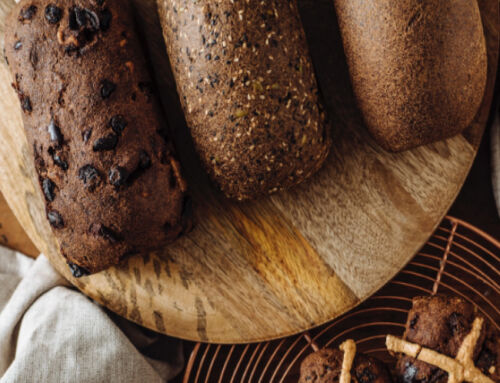Since the 1980s we’ve been waging a war on fat – blaming it for widening waistlines, high cholesterol and increasing rates of heart disease. Instead, we opted for ‘light’ and ‘low-fat’, not realising these foods were being pumped with sugar to make up for the lack of flavour.
Thankfully society is now coming to realise that fat has been the victim of a publicity war, and that not all fats are bad!
We actually need fats – they are essential for a well-balanced diet and optimum health.
But it’s all about the type and quality of the fats you eat.
Don’t take my word for it though. Here are 5 reasons why fat is underrated…
- Fat is the body’s most concentrated source of energy, providing more than twice as much potential energy as carbohydrate or protein
- Certain fats sources (like nuts, seeds and oily fish) provide essential fatty acids, which make hormones, maintain healthy blood vessels and manage inflammation in your body.
- Fat helps you to absorb certain vitamins, including A, D, E and K – people who eat low-fat diets are often deficient in these vitamins
- Every single cell membrane requires fat to function properly, and those cell membranes are vital for the proper functioning of your entire body.
- Last but not least – it makes our food tastier!
It’s so important to make sure you’re eating the right kind of fat, because fats are absorbed into your bloodstream very quickly. This means if you consume a rancid fat, which has been heated over and over, it could be causing immediate damage to your arterial walls.
Here are three of my favourite types of good fats:
– Coconut Oil
There are so many reasons to love coconut oil. It’s the best oil for cooking as it is stable enough to resist heat and won’t turn rancid and oxidize like other oils (including olive oil).
It’s also excellent for weight loss! Coconut oil contains naturally occurring short-term medium-chain saturated fatty acids (MCFAs), which are sent straight to your liver and converted into energy, as opposed to being stored as fat. These MCFAs are easily digested and help stimulate your metabolism and thyroid activity, leading to weight loss.
You want to buy coconut oil that is virgin, organic, unrefined and cold pressed. Expensive doesn’t always mean best, so make sure to read the label.
– Butter
This might seem controversial for those of you who grew up with margarine, but butter is an amazing fat which is great for you IF you consume good quality butter in small amounts.
Butter is essentially pure cream that has been separated from milk and churned. It contains animal fats, water and often salt (the only added ingredient).
The thing I love about butter is that it contains butyrate, a compound that provides fuel for the cells lining your digestive tract and bowel, helping to prevent bowel cancer and improve the health of your gut. These short-chain fatty acids benefit the colonocytes (cells of the colon) by increasing energy production and cell proliferation.
It also provides essential vitamins D, E & K for cardiovascular health and bone density, minerals like selenium and iodine and fatty acids – all of which you won’t get from margarine. It is particularly rich in the most easily absorbable form of Vitamin A, which is essential for thyroid and adrenal health. It does contain more saturated fats than margarine, but has less trans fats which have been linked to high cholesterol levels.
When looking for butter, opt for organic, unsalted and cultured butter. The salt added to butter is often cheap, so it’s best to use your own good quality salt if you prefer a saltier taste. An even better option is ghee, which is the purer or clarified version of butter.
– Fish Oil
You might not think of fish oil as a fat, but it’s an extremely important source of two Omega 3 fatty acids – eicosapentaenoic acid (EPA) and docosahexaenoic acid (DHA) – which are known to be essential to our health.
There are so many reasons to love fish oil! Thousands of studies have been undertaken to show it can reduce the risk of heart disease, improve symptoms of rheumatoid arthritis, reduce inflammation, reduce acute period pain, and even improve thinking skills in children with ADHD.
In an ideal world, we would get all the omega-3s we need from our diet – but that can be difficult, so often people require supplements in the form of capsules or liquids.
I recommend
- Incorporating small wild-caught fish (smaller fish contain less mercury) into your diet
- Include vegetable sources such as walnuts, chia seeds and flaxseeds – these foods contain the Omega-3 fat ALA, which converts to EPA and DHA, although it is not known how well this conversion occurs.
- Supplement your dietary intake with a good quality fish oil containing 1000 mg of EPA per day – 1 teaspoon of fish oil is equivalent to taking 9 capsules of fish oil. You can read more about why all fish oils aren’t equal on our blog.
So remember, not all fats make you fat! It’s all about the type and quality of the fats you eat.
Have you been living with a health condition for years that hasn’t responded to conventional medicine effectively? Or are you simply not feeling your best?
Click here to download our free guide with tips and steps you can take to feel well again, naturally. This guide covers everything you need for healthy living – diet, sleep, stress and supplements.




